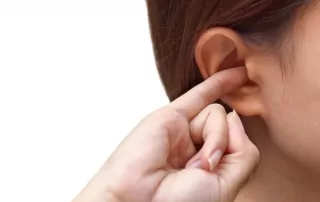Sinusitis assessment
Welcome to Qoctor’s online doctor service which can provide assessment for sinusitis. Answer some simple questions, then book a video consultation for $31.99. If the doctor issues a prescription, you can have it sent direct to your local pharmacy.
Please note: our doctors assess each patient individually, creating a treatment plan based on symptoms & medical history. Whilst antibiotics may be recommended in suitable cases where a bacterial infection is deemed likely, it is important to note that other treatments are often issued if the doctor diagnoses a viral illness. All advice and treatment is issued subject to your consultation and doctor’s assessment.
About Acute Sinusitis
- The sinuses are hollow spaces within your facial bones. Sinusitis is when these spaces become inflamed. Acute sinusitis is a common issue following a common cold or influenza. Often, it occurs when a person has already had a head cold/flu for 5 or 6 days, when the typical symptoms start to develop.
- In the majority of cases, acute sinusitis is caused by a viral infection, and therefore antibiotics are not helpful.
- Common symptoms include facial pain or pressure that feels worse when you lean forward/bend over, a congested/stuffy nose, and/or nasal discharge which can be yellow/green.
- Other symptoms of sinusitis include a sense of pressure in the ears, headache, altered sense of smell, aching teeth, cough. bad breath, tiredness and fever/high temperature.

Common Questions and Answers
It is not necessarily possible to entirely avoid getting sinusitis, but some strategies that may help include:
- avoid smoking/smoke exposure/air pollution exposure
- proactively manage any hay fever or dust allergies with appropriate treatment- get advice from your doctor or pharmacist if you are unsure.
- avoid exposure to respiratory viruses, stay away from people who are known to be unwell with common colds/flus.
- some people find using an air humidifier in their living space can help, particularly if their home heating/air conditioning system causes the air to be very dry. Humidifiers need to be properly cleaned/ maintained, to avoid mold developing.
If you are getting frequent sinus infections despite taking the above steps, speak to your doctor for advice.
In most cases, sinusitis gets better by itself, after a few days/weeks. Supportive treatment can include:
- saline nasal sprays
- decongestant sprays (for a limited period of time- always read the label! Overuse can lead to “rebound” or worsening symptoms.)
- anti allergy nasal sprays (which may contain corticosteroids and/or an antihistamine)
- simple over the counter analgesia (painkillers) from the pharmacy
- antihistamine medications (if allergies are contributing to your symptoms)
Antibiotics are sometimes prescribed where it appears there may be a bacterial sinus infection that is not getting better by itself.
In most cases, sinusitis follows on from a common cold or flu like illness. However, some other conditions can make sinusitis more likely to occur, such as:
- hay fever
- smoking or passive smoking
- physical abnormalities in the nose/sinuses that affect drainage- e.g. a deviated septum or polyps.
- a compromised immune system
- a medical condition such as Cystic Fibrosis
In some cases, a bout of sinusitis can continue for more than 3 months- this is known as chronic sinusitis. Some people who suffer from chronic sinusitis continue to have mild symptoms on an ongoing basis, with flare ups of acute sinusitis from time to time. Serious complications of acute sinusitis are rare, but can include meningitis, cellulitis (skin/soft tissue infection), and spread of bacterial infection to other parts of the body.
In the majority of cases, sinusitis can be diagnosed based on the history of your symptoms. Sometimes a doctor may recommend further testing, such as a scan/imaging, if symptoms are continuing for months. If you have ongoing or frequently recurring symptoms, you may also need to be referred to an Ear Nose and Throat specialist who may wish to perform a camera test (nasal endoscopy), to take a closer look at your nasal passages and sinuses. A nasal swab to test for certain infections, or tests to check for allergies may also be occasionally considered in such cases.
Yes, in most cases, acute sinusitis gets better after a few weeks, with simple, supportive treatment, such as rest, fluids and over-the-counter nasal sprays/painkillers, However, in some cases, if it is getting worse or not settling in the expected timeframe, a doctor may consider prescribed treatments.
Sinusitis that lasts longer than 12 weeks is said to be “chronic”. Some people suffer from mild chronic sinusitis and experience flare ups where it becomes “acute” and more symptomatic.
The most common symptoms of acute sinusitis are:
- facial pain or pressure that feels worse when you lean forward/bend over.
- congested or stuffy nose
- nasal discharge which may be yellow/green
Other symptoms include:
- A sense of pressure in the ears
- Headache
- Impaired sense of smell
- An ache in your teeth
- Cough
- Halitosis (bad breath)
- Fatigue
- Fever
Health Library
Is Tonsillitis Contagious?
Is Tonsillitis Contagious? (and other common questions about sore throats!) Tonsillitis, an inflammation of the tonsils, raises a common question: is it contagious? Caused by viruses or bacteria, tonsillitis can indeed be spread through airborne droplets, personal contact, and shared items. Understanding its contagious nature and implementing preventive measures is crucial for reducing its transmission and safeguarding public health. What is Tonsillitis? Tonsillitis is inflammation of the tonsils, which are the two oval-shaped lumps of tissue, located at the back of your throat. It's a common condition, particularly among children, and can present with the following symptoms: Sore throat or “scratchy throat” Pain when swallowing Enlarged tonsils, sometimes with white spots or yellow/white/grey-ish coating Fever Tender, enlarged lymph nodes around the neck area Upset stomach (tummy pain or vomiting) Tonsillitis can be caused by a virus or bacteria. The most common bacterial [...]
Quinsy- a complication of tonsillitis
Quinsy- a complication of tonsillitis symptoms who gets it? causes treatment What is Quinsy? Quinsy occurs when an abscess forms at the top of one of the tonsils An abscess is a collection (or bag) of pus The tonsils are the 2 lumps you can see in your throat when you open your mouth wide They sit in the bottom corners at the back (behind your tongue) They are either side of the dangly “uvula” which hangs from the top Book a GP telehealth appointment What are the symptoms of Quinsy? Worsening sore throat Feeling unwell Significant difficulty swallowing Smelly breath Usually a fever (high temperature) Usually the glands are up in your neck Sometimes earache Sometimes difficulty opening the mouth wide Sometimes it causes you to speak with a strange voice, [...]
Removal of ear wax- when and how?
Removal of ear wax- when and how? symptoms causes treatment prevention What is ear wax? Ear wax is also known as “cerumen”. It’s a yellow or brownish substance made by the lining of the ears. It naturally protects the ears by water-proofing them, as well as trapping dirt, dust, germs and dead skin cells. The wax containing this trapped material gradually makes its way to the opening of the ear (movements such as talking and chewing help with this process), cleaning the ears as it does so. What are the symptoms of ear wax? Symptoms of ear wax build-up may include A blocked sensation in the ears Slightly reduced hearing Buzzing or ringing in the ears (tinnitus) Sometimes mild discomfort or irritation in the ears . What conditions can be assessed by [...]



